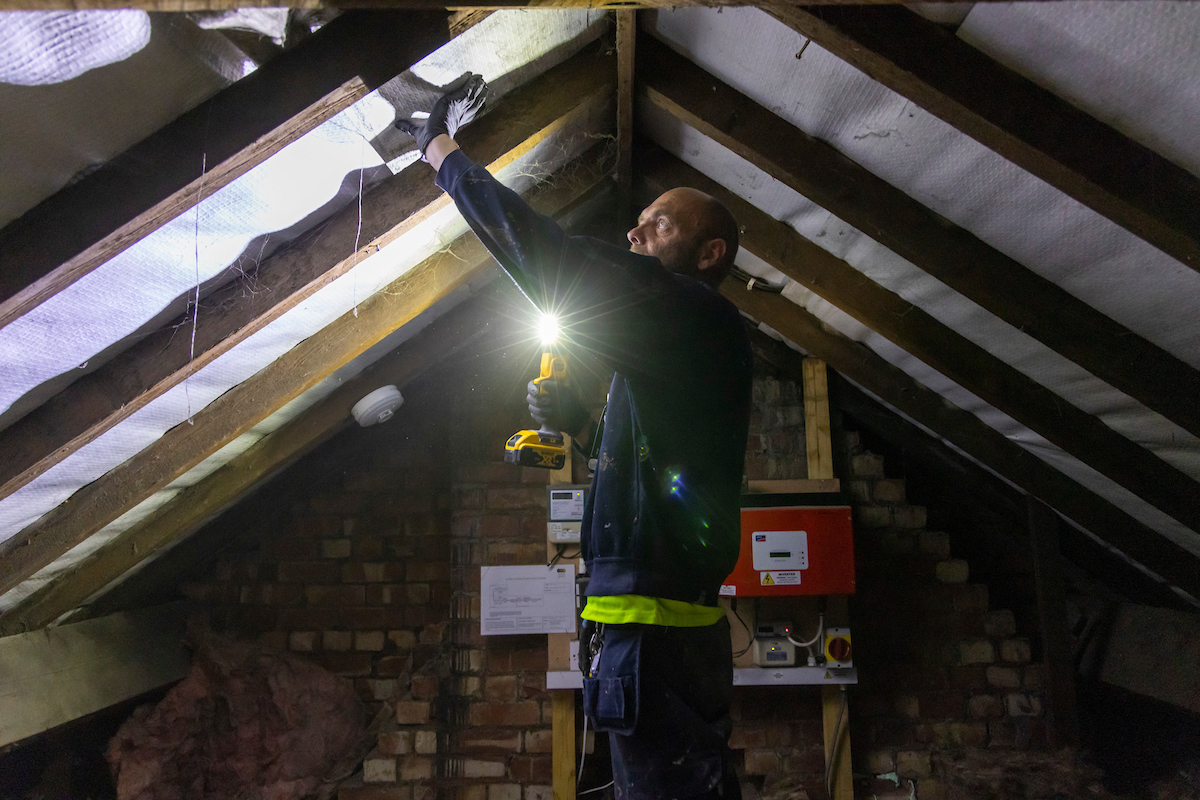Ashden has called for urgent investment in the skills to create energy-efficient homes, after the UK Government was heavily criticised in a major report by the Climate Change Committee released on 29 June.
The Climate Change Committee (CCC) has warned the Government is headed for failure on lowering emissions – singling out the UK’s ‘shocking’ home insulation programme.
Ashden’s Cities Manager Cara Jenkinson said: “The CCC is right to identify a shocking lack of progress on home insulation. But in places, the truth is even worse than this report suggests.
“The report suggests that plans to help local authorities lead home upgrades are broadly on track. In reality, existing council schemes aimed at the fuel poor need to ramp up massively – but we have few skilled installers, and no national skills plan. Authorities need more support, and fast.
“With the country’s energy crisis deepening, we must urgently build the skills base to provide better home insulation and install modern technology such as heat pumps. If we can’t get the foundations right, we’ve no hope of building a zero carbon future.”
Ashden’s retrofit briefing has answers for government and councils
With 80 to 85% of today’s homes likely to still be standing in 2050, and the UK’s housing stock still one of the most energy inefficient in Europe, the country must carry out a national programme of upgrades at lightning speed.
This task is especially urgent considering that councils and families are being hit hard by the biggest cost of living rise in 50 years. According to the Resolution Foundation, the number of English households in ‘fuel stress’ has doubled from 2.5 to 5 million as a result of the price cap rising in April 2022, with another 2.5 million households at risk in October if the price cap rises again to £2,500.
Ashden’s new briefing, Retrofit: Creating Warmer Homes, sets out actions for councils and central government to deliver energy-efficient homes, as well as case studies of local authority action.
Ashden’s retrofit recommendations for government are:
- Implement a National Retrofit Strategy as set out by the Construction Industry Training Board (CITB), with a focus on building renovation plans or ‘passports’ for each home. This will provide the long-term certainty for businesses, training providers and public and private finance to invest in retrofit.
- Introduce further incentives and finance for retrofit, including a fiscally neutral variable stamp duty Land Tax for more efficient homes. Government should also create a revolving loan fund and/or low-cost finance for home energy retrofitting, building on the VAT cut for energy efficiency measures introduced in March 2022.
- Confirm the £9.2 billion committed to retrofit and low carbon heat in the 2019 Conservative manifesto, and invest an additional £0.5 billion for insulation measures by 2024.
- Introduce as soon as possible the proposed regulations on the energy performance of private rented homes, so these homes are rated EPC ‘C’ by 2028.
- Ensure that government funded retrofit schemes allow sufficient delivery time to secure training objectives – for officers employed by councils and housing providers as well as tradespeople, project managers, retrofit assessors and co-ordinators. Each grant should include a dedicated amount for training.
- Reform the apprenticeship system to make it easier for small and micro-businesses to take on apprentices, make current apprenticeship standards more flexible, and invest in further education colleges to develop training facilities and upskill instructors.
- Include local government representation on the new Green Jobs Delivery Group and fund councils to play a leading role in local skills improvement plans, alongside employers and education providers.

